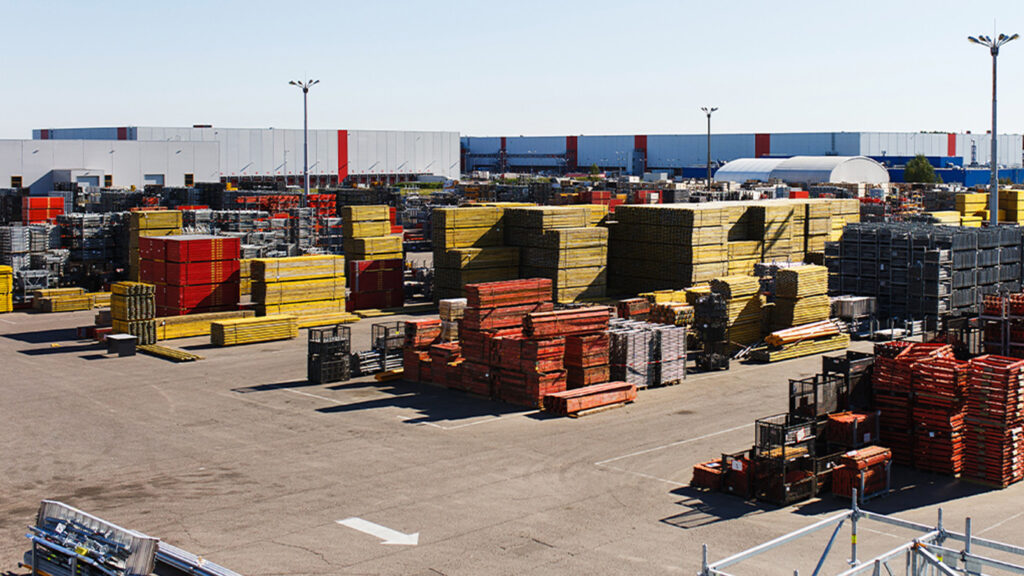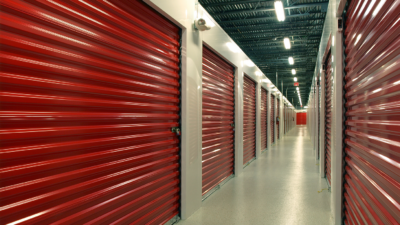Examining the Diverse Tenant Base of Industrial Outdoor Storage
The growing interest in investing in industrial real estate through industrial outdoor storage (IOS) has raised concerns about its vulnerability to a potential freight recession. This is because the trucking industry, which is closely linked to IOS, has been experiencing a downturn, as evidenced by a notable decline in ocean freight orders.
As of March 2023, orders have dropped by approximately 38% compared to the same period the previous year, leading J.B. Hunt Transport Services’ president Shelley Simpson to describe the situation as a “freight recession.” Despite the close connection between IOS and the trucking industry, it is worth noting that the tenant base of IOS is actually quite diverse. In this article, we will delve into the various non-trucking IOS tenant types and how their demand profile may be counter-cyclical in nature.
 Jimmy Ullrich
Jimmy Ullrich
The Industrial Outdoor Storage (IOS) asset class has become a standout performer, poised to deliver impressive returns, as per industry experts. The IOS tenant base is actually quite diverse, extending beyond just trucking. As IOS continues to gain traction, it’s important to examine the demand profile of certain tenants and their resilience in the face of economic downturns.
The Rise of IOS
The IOS asset class has become a standout performer, poised to deliver impressive returns, as per industry experts. Valued at approximately $200B, this asset class has garnered significant attention from equity investors and led to the creation of numerous operating platforms designed to aggregate the product. The driving force behind this surge of interest is the rental rate growth story, fueled by extremely limited supply and increasing demand.
Diverse Tenant Base of IOS
The IOS tenant base is actually quite diverse, extending beyond just trucking. Tenants include equipment rental, roofing supply, plumbing supply, modular buildings, lumber yards, pipe yards, infrastructure supply, contractor yard, automotive storage, auction sites, and more. Even in the event of a freight recession, there are still plenty of tenants vying for limited supply sites, such as equipment rental businesses and building material suppliers.
Exploring the Counter-Cyclical Nature of IOS Tenants
As IOS continues to gain traction, it’s important to examine the demand profile of certain tenants and their resilience in the face of economic downturns. Some IOS tenants, like modular building companies such as Williams Scotsman, actually see an increase in demand for storage during a recession as buildings are shipped back from their locations. Similarly, roofing supply houses like Beacon have a relatively stable demand profile over time, with their space needs tied to the existing supply of roofs rather than new construction.
During the Global Financial Crisis and Great Recession, I distinctly recall driving along I4 in Central Florida and observing the sizable Ritchie Bros. Auction site in Davenport. It served as a reverse bellwether for the recession, with the site progressively filling up with heavy equipment previously used for land development and construction as the recession intensified. Numerous IOS tenants are not solely reliant on trucking and possess a demand profile that is counter cyclical to economic trends.
A Strong Case for Continued Demand and Returns
While some may speculate that a potential freight recession could have a chilling effect on the thriving IOS market, my prediction is that the impact won’t be as harsh as many anticipate. IOS has a varied tenant base and is well-insulated from a major negative impact caused by a freight recession. I believe it will likely continue to attract investor attention and deliver impressive returns due to its diverse and counter-cyclical demand profile.
If you are interested in learning more, contact our Colliers Industrial Capital Markets team here (Ryan Vaught, Jimmy Ullrich, Michael Macchia, and Riley Vaught).



 Craig Hurvitz
Craig Hurvitz
 Aaron Jodka
Aaron Jodka